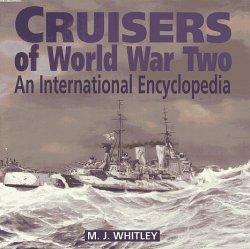As a summary of American foreign policy toward Asia, the Open Door policy was first articulated at the turn of the century in a bid for greater access to Asian economic markets. American interest in protecting these markets increased after the United States took control of the Philippines in the war with Spain in 1898. Government officials feared that they would be cut out of plans by the European imperialist powers to carve up China for themselves. By 1900, England, France, Germany, Russia, and Japan had already taken territory in China. In response, the United States hoped to persuade the major powers through diplomacy to maintain the territorial status quo and thus keep open economic access to Asia.
President William McKinley issued a statement in September 1898 stating that the United States wanted to protect the political and administrative integrity of China as well as have access to the country: “Asking only the open door for themselves, we are ready to accord the open door to others.” In 1899, Secretary of State John Hay sent out a similar message, which was later called the “Open Door notes,” to the major powers in Europe and Japan. In the messages, Hay asked England, Germany, Russia, France, Japan, and Italy to abide by three principles. First, he asked that each nation with a sphere of influence in China respect the rights of other nations in its sphere. Second, he asked that Chinese officials continue to collect tariff duties in all the spheres. Third, he asked for nondiscrimination by nations in levying port dues and railroad rates against other nations. U. S. officials hoped that the principles would protect free trade in China. In addition, they wanted to prevent the formal partition of China by European powers while avoiding military involvement.
Europe and Japan reacted coolly to the Open Door proposals, noting that they would be unable to act unless all the other powers agreed as well. Despite the weak reception to the Open Door policy, Hay announced that all major powers had accepted the American principles. In practice, any nation could violate the Open Door, unless the United States was willing to go to war over the policy.
Almost immediately the Open Door was tested by a revolt that broke out in China. In the Boxer Rebellion, nationalists laid siege to the entire foreign diplomatic corps, most of whom had retreated to the British embassy in Beijing. As a result the imperial powers, including the United States, sent an international expeditionary force into China to rescue the diplomats. The international force broke the siege in August 1900.
President McKinley ordered the military to participate in the expeditionary force so that the United States could prevent the partition of China by Japan and the European powers. After the Boxer Rebellion, England and Germany agreed to abide by the Open Door Policy. In addition, Hay persuaded the major powers to agree to China compensating them for damages accrued during the rebellion. At least in theory, the United States achieved its goals of maintaining access to free trade and of protecting the sovereignty of China. In practice, the United States was unable to prevent the country’s dismemberment by European countries, because the United States was ultimately unwilling to use military force against the major powers to protect China.
During the Boxer Rebellion, Russia had positioned 175,000 troops in Manchuria, a province of China over which Russia and Japan vied for control. It demanded exclusive rights and a commercial monopoly in China. President Theodore Roosevelt and Hay, unable to stop Russian encroachment on Chinese sovereignty, stated that they recognized the privileged role of Russia in the region but that the administration wanted to preserve the commercial freedom of the United States. Roosevelt backed down from the Open Door Policy of 1900, because he thought that Americans were not willing to fight in a remote area of Asia for the abstract idea of Chinese sovereignty in Manchuria. According to historian Akira Iriye, Roosevelt realized the futility of trying “to play the role of an Asian power without military power.”
In 1904, Japan attacked the Russian fleet at Port Arthur in Manchuria. In 1905, President Roosevelt agreed to mediate the Russo-Japanese War that had broken out as a result. At a peace conference, Roosevelt reached an agreement between the powers. The Russians agreed to recognize Japanese territorial gains in exchange for the Japanese agreeing to cease their fighting and expansion. Roosevelt also reached a secret agreement with the Japanese, ensuring that the United States could continue its free trade in the region. With the Russian fleet destroyed at Port Arthur, however, Japan became the dominant naval power in the Pacific, and began excluding American trade from the territories it controlled.
In the end, the United States persuaded some of the European powers to enforce the Open Door. Having intervened in the affairs of nations outside the Western Hemisphere, the Open Door policy was symbolic of the rise of the United States as a world military power early in the 20th century. Yet, both the war with Spain and the relative ineffectiveness of its diplomacy in the Open Door notes revealed the inadequacy of the American military. The experience of expansion spurred national reforms to build a modern military system in the United States.
Further reading: Michael H. Hunt, The Making of a Special Relationshi-p: The United States and China to 1914 (New York: Columbia University Press, 1983); Akira Iriye, Pacific Estrangement: Japanese and American Expansion, 1897-1911 (Cambridge, Mass.: Harvard University Press, 1972).
—Glen Bessemer




 World History
World History









